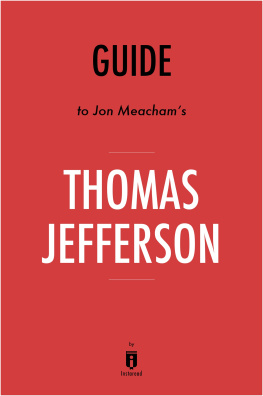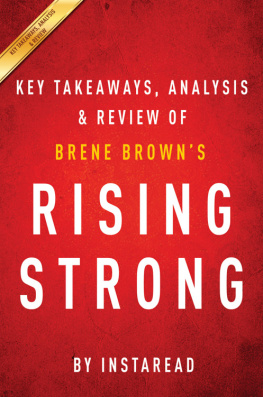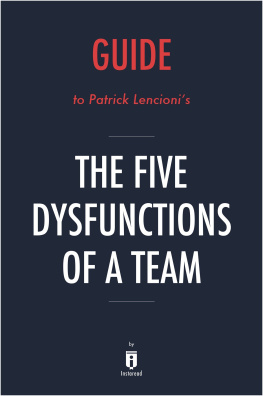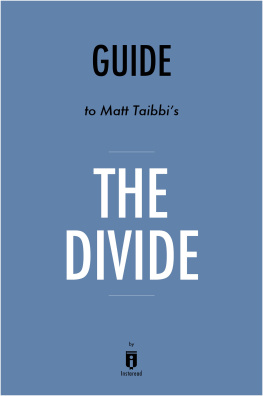Guide to
Jon Meacham's
Thomas Jefferson
The Art of Power
by
Instaread
Please Note
This is a companion to the original book.
Copyright 2016 by Instaread. All rights reserved worldwide. No part of this publication may be reproduced or transmitted in any form without the prior written consent of the publisher.
Limit of Liability/Disclaimer of Warranty: The publisher and author make no representations or warranties with respect to the accuracy or completeness of these contents and disclaim all warranties such as warranties of fitness for a particular purpose. The author or publisher is not liable for any damages whatsoever. The fact that an individual or organization is referred to in this document as a citation or source of information does not imply that the author or publisher endorses the information that the individual or organization provided. This concise companion is unofficial and is not authorized, approved, licensed, or endorsed by the original books author or publisher.
Table of Contents
Summary
Jon Meachams Thomas Jefferson: The Art of Power is a biography that focuses on Thomas Jeffersons abilities as a practical politician. Meacham argues that Jefferson was a pragmatist who was willing to adjust his philosophical principles as necessary to preserve the United States.
Thomas Jefferson was born in 1743 to Peter Jefferson, a wealthy, influential Virginia planter, and Jane Randolph, also of an influential Virginia family. Jeffersons father died when he was 14.
At 16, Jefferson attended the College of William and Mary, where he cultivated the intellectual curiosity and the interest in philosophy that he retained his entire life. He was particularly influenced by George Wythe, who taught him law and helped to inspire Jeffersons wide reading and his taste for luxuries.
Jefferson was admitted to the bar in 1767. He became a delegate to the Virginia House of Burgesses in 1769. In 1768, he began work on Monticello, the mansion construction he would continue to supervise throughout his life. He married his distant cousin, the 23-year-old widow Martha Patty Wayles Skelton, in 1772.
At this time, Jefferson was interested in slavery reform. He defended some slaves seeking freedom, and he introduced a proposal in the House of Burgesses making it legal for masters to free their slaves. This proposed legislation was soundly defeated. The loss may have contributed to Jeffersons reluctance to push for slavery reform over the rest of his career.
Jeffersons involvement in revolutionary politics began in 1774 when he wrote a legislative resolution calling for a day of fasting and prayer to protest Britains Intolerable Acts. The resolution demonstrated Jeffersons pragmatism; he was not a traditionally devout man, but he used the language of spirituality to make a political appeal.
Jefferson was elected a delegate to the Second Continental Congress in 1775. He developed a close friendship with Massachusetts delegate John Adams in part because both were strongly in favor of independence. With Adamss encouragement, Jefferson wrote the Declaration of Independence. It was accepted by Congress in 1776, but with many changes including the excision of a section that condemned the slave trade. Jefferson found the process of revision by committee exceedingly painful but did not protest publicly. This was consistent with his habit of remaining quiet in debate and working for his goals behind the scenes. Jefferson was always a poor public speaker.
Jefferson returned to Virginia, where he was elected to the House of Delegates, and then, in 1779, to the governorship. His tenure was disastrous. When Benedict Arnold and British forces invaded Virginia, Jefferson was slow to call out the militia. As a result, Richmond was burned and the government had to flee. An inquiry into Jeffersons actions absolved him of wrongdoing, but his conduct continued to draw criticism for the rest of his life.
In 1782, after a long illness exacerbated by six childbirths, Patty Jefferson died. Patty had had a difficult relationship with her stepmother and was concerned that if Jefferson took another wife, their children would suffer. On her deathbed, she asked Jefferson to promise that he would never remarry. Jefferson agreed and never took another wife. Her death left him grief-stricken and agonized.
Following the conclusion of the war, Jefferson was appointed as a Virginia delegate to the Congress of the Confederation in 1783. He worked on policies for Western settlement and his ideas largely became law in the Northwest Ordinance of 1787.
In the meantime, the Congress had dispatched Jefferson as an ambassador to France. Overseas, Jefferson reestablished his friendship with John Adams and became close to Adamss wife, Abigail, and son John Quincy. He was also joined in 1787 by Sally Hemings, who at 14 came to France as a traveling companion for Jeffersons daughter Polly. Hemings was Jeffersons wifes enslaved sister; Jeffersons father-in-law had had a number of children out of wedlock with enslaved women. Over the next two years, Jefferson began a sexual relationship with Hemings.
Jeffersons appointment ended and he returned to the United States in 1789. His time in France, and particularly the beginning of the French Revolution, cemented Jeffersons republican sympathies and his antipathy to monarchy. He thought that the French Revolution was a continuation of the American Revolution and felt that the United States should be on the side of the republicans.
President George Washington appointed Jefferson to his cabinet as secretary of state. Jefferson was often in conflict with Treasury Secretary Alexander Hamilton, who feared the anarchy of the French Revolution and felt that the United States should model itself after Britain. When France and Britain went to war in 1793, Hamilton urged alliance with Britain, and Jefferson with France.
Jefferson resigned as secretary of state at the end of that year. He returned to Monticello, supposedly to retire, but actually to work against Hamilton and Washington by organizing the Democratic-Republican Party. He ran for president in 1796, coming in second to his old friend John Adams. Adams was running as the Federalist candidate to carry on the policies of Washington and Hamilton. Under the law at the time, Jeffersons second-place finish made him vice president.
In office, Jefferson continued to coordinate resistance to the Federalist president and supported critics of the administration. He also worsened a personal breach with his former friend, President Adams. As the Quasi-War with France began, Adams pushed through the Alien and Sedition Acts, which made it illegal to criticize the president. Jefferson saw these laws as a grab for absolute power. In response, he helped James Madison draft the Kentucky and Virginia Resolutions, which argued that states could nullify federal laws that the states considered unconstitutional. These resolutions seem to contradict Jeffersons support for the union, as well as his later actions as president. But they were a strategic and pragmatic reaction to what he saw as the pressing danger of monarchism at the time.
In the 1800 presidential election, Jefferson defeated Adams but received the same number of votes as his vice presidential candidate, Aaron Burr. The Federalist-dominated House of Representatives finally decided in favor of Jefferson, but the machinations created permanent mistrust between Jefferson and Burr.
As president, Jefferson took steps to reduce federal power as he promised he would do. He lowered taxes, reduced military expenditures, and pardoned some of those arrested under the Alien and Sedition Acts. Although Jefferson had criticized expansive executive powers, he was willing to exercise them in sweeping ways once in office. He sent naval forces to the Barbary Coast under executive authority and asked Congress to declare war only after the action had been undertaken. He arranged the Louisiana Purchase from France, which doubled the size of the United States for only $15 million, despite the fact that the Constitution did not explicitly provide the president with power to purchase land. Jeffersons actions might be seen as contradicting his principles, but he was willing to make pragmatic compromises to advance the interests of his country.
Next page
















